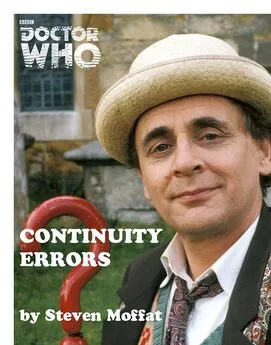Steven Dubner - Freakonomics
- Название:Freakonomics
- Автор:
- Жанр:
- Издательство:неизвестно
- Год:неизвестен
- ISBN:нет данных
- Рейтинг:
- Избранное:Добавить в избранное
-
Отзывы:
-
Ваша оценка:
Steven Dubner - Freakonomics краткое содержание
Freakonomics - читать онлайн бесплатно полную версию (весь текст целиком)
Интервал:
Закладка:
There’s one way to find out: measure the difference between the sales data for houses that belong to real-estate agents themselves and the houses they sold on behalf of clients. Using the data from the sales of those 100,000 Chicago homes, and controlling for any number of variables—location, age and quality of the house, aesthetics, and so on—it turns out that a real-estate agent keeps her own home on the market an average of ten days longer and sells it for an extra 3-plus percent, or $10,000 on a $300,000 house. When she sells her own house, an agent holds out for the best offer; when she sells yours, she pushes you to take the first decent offer that comes along. Like a stockbroker churning commissions, she wants to make deals and make them fast. Why not? Her share of a better offer—
$150—is too puny an incentive to encourage her to do otherwise.
Of all the truisms about politics, one is held to be truer than the rest: money buys elections. Arnold Schwarzenegger, Michael Bloomberg, Jon Corzine—these are but a few recent, dramatic examples of the truism at work. (Disregard for a moment the contrary examples of Howard Dean, Steve Forbes, Michael Huffington, and especially Thomas Golisano, who over the course of three gubernatorial elections in New York spent $93 million of his own money and won 4 percent, 8 percent, and 14 percent, respectively, of the vote.) Most people would agree that money has an undue influence on elections and that far too much money is spent on political campaigns.
Indeed, election data show it is true that the candidate who spends more money in a campaign usually wins. But is money the cause of the victory?
It might seem logical to think so, much as it might have seemed logical that a booming 1990s economy helped reduce crime. But just because two things are correlated does not mean that one causes the other. A correlation simply means that a relationship exists between two factors—let’s call them X and Y—but it tells you nothing about the direction of that relationship. It’s possible that X
causes Y; it’s also possible that Y causes X; and it may be that X and Y are both being caused by some other factor, Z.
Think about this correlation: cities with a lot of murders also tend to have a lot of police officers. Consider now the police/murder correlation in a pair of real cities. Denver and Washington, D.C., have about the same population—but Washington has nearly three times as many police as Denver, and it also has eight times the number of murders. Unless you have more information, however, it’s hard to say what’s causing what. Someone who didn’t know better might contemplate these figures and conclude that it is all those extra police in Washington who are causing the extra murders. Such wayward thinking, which has a long history, generally provokes a wayward response. Consider the folktale of the czar who learned that the most disease-ridden province in his empire was also the province with the most doctors. His solution? He promptly ordered all the doctors shot dead.
Now, returning to the issue of campaign spending: in order to figure out the relationship between money and elections, it helps to consider the incentives at play in campaign finance. Let’s say you are the kind of person who might contribute $1,000 to a candidate. Chances are you’ll give the money in one of two situations: a close race, in which you think the money will influence the outcome; or a campaign in which one candidate is a sure winner and you would like to bask in reflected glory or receive some future in-kind consideration. The one candidate you won’t contribute to is a sure loser. (Just ask any presidential hopeful who bombs in Iowa and New Hampshire.) So front-runners and incumbents raise a lot more money than long shots. And what about spending that money? Incumbents and front-runners obviously have more cash, but they only spend a lot of it when they stand a legitimate chance of losing; otherwise, why dip into a war chest that might be more useful later on, when a more formidable opponent appears?
Now picture two candidates, one intrinsically appealing and the other not so.
The appealing candidate raises much more money and wins easily. But was it the money that won him the votes, or was it his appeal that won the votes and the money?
That’s a crucial question but a very hard one to answer. Voter appeal, after all, isn’t easy to quantify. How can it be measured?
It can’t, really—except in one special case. The key is to measure a candidate against…himself. That is, Candidate A today is likely to be similar to Candidate A two or four years hence. The same could be said for Candidate B. If only Candidate A ran against Candidate B in two consecutive elections but in each case spent different amounts of money. Then, with the candidates’ appeal more or less constant, we could measure the money’s impact.
As it turns out, the same two candidates run against each other in consecutive elections all the time—indeed, in nearly a thousand U.S. congressional races since 1972. What do the numbers have to say about such cases?
Here’s the surprise: the amount of money spent by the candidates hardly matters at all. A winning candidate can cut his spending in half and lose only 1 percent of the vote. Meanwhile, a losing candidate who doubles his spending can expect to shift the vote in his favor by only that same 1 percent. What really matters for a political candidate is not how much you spend; what matters is who you are.
(The same could be said—and will be said, in chapter 5—about parents.) Some politicians are inherently attractive to voters and others simply aren’t, and no amount of money can do much about it. (Messrs. Dean, Forbes, Huffington, and Golisano already know this, of course.)
And what about the other half of the election truism—that the amount of money spent on campaign finance is obscenely huge? In a typical election period that includes campaigns for the presidency, the Senate, and the House of Representatives, about $1 billion is spent per year—which sounds like a lot of money, unless you care to measure it against something seemingly less important than democratic elections.
It is the same amount, for instance, that Americans spend every year on chewing gum.
This isn’t a book about the cost of chewing gum versus campaign spending per se, or about disingenuous real-estate agents, or the impact of legalized abortion on crime. It will certainly address these scenarios and dozens more, from the art of parenting to the mechanics of cheating, from the inner workings of the Ku Klux Klan to racial discrimination on The Weakest Link. What this book is about is stripping a layer or two from the surface of modern life and seeing what is happening underneath. We will ask a lot of questions, some frivolous and some about life-and-death issues. The answers may often seem odd but, after the fact, also rather obvious. We will seek out these answers in the data—whether those data come in the form of schoolchildren’s test scores or New York City’s crime statistics or a crack dealer’s financial records. (Often we will take advantage of patterns in the data that were incidentally left behind, like an airplane’s sharp contrail in a high sky.) It is well and good to opine or theorize about a subject, as humankind is wont to do, but when moral posturing is replaced by an honest assessment of the data, the result is often a new, surprising insight.
Morality, it could be argued, represents the way that people would like the world to work—whereas economics represents how it actually does work.
Economics is above all a science of measurement. It comprises an extraordinarily powerful and flexible set of tools that can reliably assess a thicket of information to determine the effect of any one factor, or even the whole effect. That’s what
“the economy” is, after all: a thicket of information about jobs and real estate and banking and investment. But the tools of economics can be just as easily applied to subjects that are more—well, more interesting.
This book, then, has been written from a very specific worldview, based on a few fundamental ideas:
Incentives are the cornerstone of modern life. And understanding them—or, often, ferreting them out—is the key to solving just about any riddle, from violent crime to sports cheating to online dating.
The conventional wisdom is often wrong. Crime didn’t keep soaring in the 1990s, money alone doesn’t win elections, and—surprise—drinking eight glasses of water a day has never actually been shown to do a thing for your health.
Conventional wisdom is often shoddily formed and devilishly difficult to see through, but it can be done.
Dramatic effects often have distant, even subtle, causes. The answer to a given riddle is not always right in front of you. Norma McCorvey had a far greater impact on crime than did the combined forces of gun control, a strong economy, and innovative police strategies. So did, as we shall see, a man named Oscar Danilo Blandon, aka the Johnny Appleseed of Crack.
“Experts”—from criminologists to real-estate agents—use their informational advantage to serve their own agenda. However, they can be beat at their own game. And in the face of the Internet, their informational advantage is shrinking every day—as evidenced by, among other things, the falling price of coffins and life-insurance premiums.
Knowing what to measure and how to measure it makes a complicated world much less so. If you learn how to look at data in the right way, you can explain riddles that otherwise might have seemed impossible. Because there is nothing like the sheer power of numbers to scrub away layers of confusion and contradiction.
So the aim of this book is to explore the hidden side of…everything. This may occasionally be a frustrating exercise. It may sometimes feel as if we are peering at the world through a straw or even staring into a funhouse mirror; but the idea is to look at many different scenarios and examine them in a way they have rarely been examined. In some regards, this is a strange concept for a book. Most books put forth a single theme, crisply expressed in a sentence or two, and then tell the entire story of that theme: the history of salt; the fragility of democracy; the use and misuse of punctuation. This book boasts no such unifying theme. We did consider, for about six minutes, writing a book that would revolve around a single theme—the theory and practice of applied microeconomics, anyone?—but opted instead for a sort of treasure-hunt approach. Yes, this approach employs the best analytical tools that economics can offer, but it also allows us to follow whatever freakish curiosities may occur to us. Thus our invented field of study: Freakonomics. The sort of stories told in this book are not often covered in Econ.
101, but that may change. Since the science of economics is primarily a set of tools, as opposed to a subject matter, then no subject, however offbeat, need be beyond its reach.
It is worth remembering that Adam Smith, the founder of classical economics, was first and foremost a philosopher. He strove to be a moralist and, in doing so, became an economist. When he published The Theory of Moral Sentiments in 1759, modern capitalism was just getting under way. Smith was entranced by the sweeping changes wrought by this new force, but it wasn’t only the numbers that interested him. It was the human effect, the fact that economic forces were vastly changing the way a person thought and behaved in a given situation.
What might lead one person to cheat or steal while another didn’t? How would one person’s seemingly innocuous choice, good or bad, affect a great number of people down the line? In Smith’s era, cause and effect had begun to wildly accelerate; incentives were magnified tenfold. The gravity and shock of these changes were as overwhelming to the citizens of his time as the gravity and shock of modern life seem to us today.
Читать дальшеИнтервал:
Закладка:






![Юрий Литвин - Stiffen corpses: Жизнь и работа коченеющих трупов [СИ]](/books/1078912/yurij-litvin-stiffen-corpses-zhizn-i-rabota-kochene.webp)


